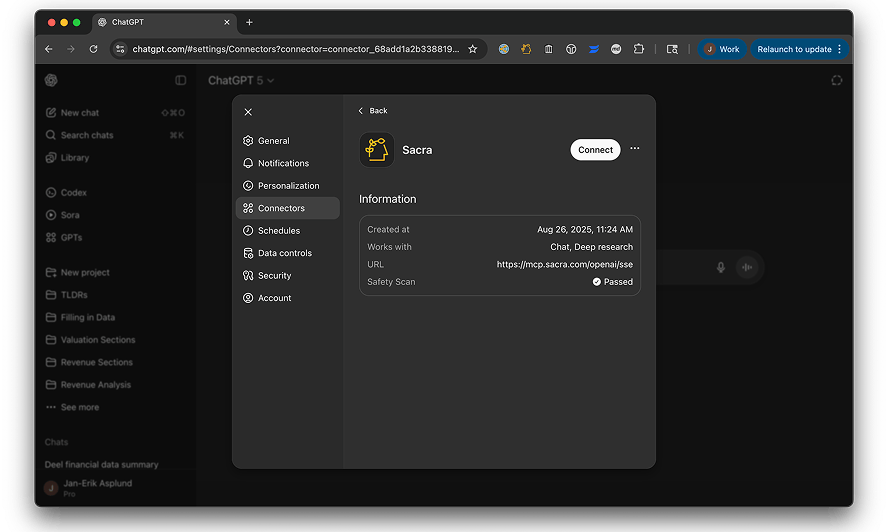We are thrilled to announce this week’s exclusive with Nikhil Basu Trivedi, esteemed Venture Capitalist! After spending 7+ at Shasta Ventures (most recently as Managing Director), Nikhil ventured off in July as an independent investor and has since invested in companies like Canva, neo.tax, and Roam Research, to name a few. His newsletter, next big thing, is a weekly essay of, well… the next big thing! With experience as a founder (Artsy), investor, board member, and advisor, we sat down to talk all things cap table related, including:
- His journey into VC and time at Shasta Ventures 📈
- The evolving role of board members and how to best support founders 📚
- The pros and cons of being an independent investor ✅
- Cap table advice ⼏
- The state of Venture Capital in 2030 🔮

TCT: Thanks for sitting down with us, Nikhil. Let’s jump in.
How did you start out with regards to your career?
I was born in the U.K., grew up there until age 13, moved to the San Francisco Bay Area, and got inspired by everything happening in Silicon Valley — the center of technology and entrepreneurship — during high school. I started working on startups during college at Princeton, one of those became a real company (Artsy), and then the lightbulb went off for me that I'd love to try my hand at investing. I joined Insight Partners in New York as an intern, then full-time after graduation, and a year later moved back to the Bay Area to join Shasta Ventures.
You spent 7+ years at Shasta Ventures in a variety of roles before leaving earlier this year. In what ways did Shasta help shape your career in venture? What were a few of the most memorable moments?
I loved my time at Shasta. I joined, at age 23 in 2012, as an associate, but the Insight (Partners) experience gave me a leg up coming in. From day one, I had some sense for how to source new companies, and some judgment for what was interesting as a potential investment. I was lucky to have a partnership that supported my growth, and gave me more and more responsibility over the years, including becoming a general partner in 2018.
The most memorable moments involve the companies that I got excited about that we ended up investing in, and the ones we didn’t invest in that went on to great success. A few in the first bucket include Canva (now worth $6B - we invested at the seed stage!), ClassDojo, Imperfect Foods, Lattice, Literati, Pill Club, Tally, and The Farmer’s Dog. A few in the second bucket include Plaid and Robinhood.
You launched “next big thing”, a weekly essay on the search for the next big thing earlier this year. What was the inspiration behind this? What has surprised you the most since launching?
I’ve enjoyed publishing essays in the past, but never got into the rhythm of doing so frequently. I decided to make use of the shelter-in-place time during this pandemic to try to make writing a daily habit. The inspiration behind next big thing was really to force myself to try to write something every week, and get many of the ideas I’ve had in my head for a while out there for others to learn from and give me feedback on.
There have been many surprises in the six months since issue #1. I think the most important one is that I find myself thinking more clearly, and with a tighter community of people around me to share ideas. I’m very grateful to the 1000s of people who subscribe to my writing, who respond and comment, who share such that each piece has 10s of 1000s of reads. I’m most proud that the average open rate of the essays is above 55%, which is certainly much better than the industry average even amongst the highest quality newsletter writers. So it seems that something is resonating and it’s worth all the effort that goes into writing.
“The Rise of Solo Capitalists” has been your most popular essay at the time of publishing this article. What trends do you think we’ll see from solo capitalists in 2021? How will this change the dynamic of having more individuals vs. venture capital firms on the cap table?
First and foremost, I think we’ll see more people go down the route of becoming solo capitalists in 2021. There are a lot of investors who are better off solo than in partnerships that are not aligned on principles and values, and where the whole isn’t greater than the sum of its parts. Angel investors are professionalizing with funds, and larger funds to enable them to be solo capitalists under the definitions I laid out. I think the biggest question is for venture capital partnerships — how will they evolve to compete with solo capitalists to lead rounds?
Since July 1st, 2020, you’ve invested in companies like Canva, neo.tax, and Roam Research (amongst countless others), with a focus on consumer technology companies, as well as enterprise companies that are building consumer-like products. How would you compare investing in companies as a solo capitalist compared to a traditional VC firm? What are the advantages and disadvantages of this?
I wouldn’t call myself a solo capitalist right now — I’m just experimenting as an individual investor, and I’m enjoying the freedom that comes with it. The advantages are that I can invest in anything that I want to invest in. But the disadvantage is that it can be challenging to remain disciplined. When you have a fund and a portfolio construction model, you must stay disciplined to stick to the strategy. I prefer having that disciplined lens.
In terms of investors supporting their portfolio companies, how do you see the role of a board member (within privately held companies) evolving over the coming years? How are you looking to develop your craft as a board member?
I’ve seen a lot of founders worry about adding board members, and spending time against managing the board dynamic. I hope that changes over the next several decades, and that the quality of investors as board members rises, such that founders realize the many advantages to having a board sooner rather than later, and seeing a board not as an overhead but as a strategic asset.
I’ve evolved already, I think, as a board member over the past five years. I try to focus on one or two key priorities at a time with each company that I serve on the board of - sometimes that’s a game-changing hire, or a key strategic decision, or a fundraise. I think helping founders prioritize well is one of the core competencies of a board member.
Sign Up Today!
To get these right in your inbox
What trends are you watching around enterprise companies that are building consumer-like products?
I’m very excited about the intersection of creation and collaboration software. I think it’s a much richer area than people realize, and I’ve already made a number of investments within it — such as Canva, Frame.io, Grain, Kapwing, and Roam Research.
Another trend that excites me is the consumerization of infrastructure software. A lot of developer tools companies are being built by consumer-oriented founders, and of course, we’ve already seen the scale to which API-first companies such as Stripe and Twilio can reach. I think we’re still in the early innings of these trends in the consumerization of enterprise technology.
As an independent investor, how do you stay organized? What are your favorite tools you use on a daily basis to maintain deal flow, communication, and so forth?
I’m doing more and more of my organizing in Roam Research. As an investor, I realize this is going to just sound like a pitch, but I’ve gone from using a combination of email, calendar, Affinity, Evernote when I was at Shasta to using Roam and Notion, as well as email and calendar of course, as the primary places where my work gets done and gets organized. I also keep closely in touch with the founders I work with via text, since that’s the quickest way to reach one another.
A genie says “I will grant you one wish. You can join any cap table you’d like for free”. What cap table would you join and why?
I’m sure others have answered the same way, but I do believe Stripe is the private technology company with the most talent inside it today. Joining the cap table to get to see the Collison brothers in action, and to have more access to the talent spinning out of Stripe, would be very rewarding beyond just the growth I think the company itself has ahead of it.
Speaking of cap tables, what’s your secret for getting on the cap table?
I don’t think it’s much of a secret, but I think the combination of asking good questions, providing insight to founders on key questions they’re wrestling with, building an authentic relationship based on mutual trust and respect, and showing founders that I’m someone they want to have in their corner for many years, is how I’ve won the right to invest in company after company.
On the flip, what’s your biggest cap table “mistake”?
While there are a few companies I’ve been a part of where we have lost or will lose money, the mistakes that keep me up are the errors of omission. The chances to have invested in Plaid and Robinhood that I got wrong. Those are the ones that keep me up the most.
What are you passionate about outside of work?
I love spending time outside — running, hiking, walking, playing tennis. I’m also a sports fanatic — in particular, of soccer (Manchester United), basketball (Warriors), cricket, and tennis. And I genuinely enjoy spending time with my wife, my family, and my friends.
The year is 2030. What’s the state of Venture Capital?
I expect that there’ll be a handful of current brands in venture capital that are still “top tier” in 2030. But I think the majority of the top 20 will be firms that aren’t there right now, and that we’ll see a changing of the guard in the venture capital industry over the next decade. A younger, more diverse, more founder empathetic group of individuals and teams will rise to the top. I hope to play a part in this evolution!
Thank you for your time and thoughts, Nikhil! We look forward to the continued success of the various companies you’re involved with!
Follow Nikhil on Twitter (@nbt) for more insights into venture capital, consumer technology, startups, and more!
Deal News 10/31-11/6
Pre-Seed
- Momo Project: $ Undisclosed. Momo Project is a pet wellness platform that provides personalized recommendations on each pet's nutrition.
- Kinnect: $ Undisclosed. Kinnect is an information-sharing network that makes it easier for families to communicate effectively.
- Assemble: $1,500,000. Assemble is an all-in-one deep freelance talent matching platform leading the future of work.
- WordExcerpt: $20,000, led by Loreen Fernandez. WordExcerpt is a U.S. based company focused on the legal acquisition of eastern literary works.
Seed
- Hydrogen: $ Undisclosed led by FINLAB. Hydrogen is embedded finance simplified.
- Blanket: $ Undisclosed. Blanket develops a sales demo booking platform that automates the sales development process.
- Inirv: $ Undisclosed. Inirv is a consumer electronics company using smart technology to bring safety and automation to the kitchen.
- Ralient: $ Undisclosed. Ralient is creating self-driving technology (software) and electric shuttles.
- Ellodee: $ Undisclosed. Media company.
- XPO360: $ Undisclosed. Virtual Trade Shows Made Easy.
- Intellecy Inc: $ Undisclosed. Intellecy: smart water system empowers homeowners and building managers to control their water in realtime and protect against leak damage.
- ConsoliDoc: $ Undisclosed. Private medical records storage company designed to give patients control of their medical records.
- Torre: $7,000,000. Torre is a professional network that reinvents job-matching and recruitment services.
- Massive Bio: $2,600,000 led by Revo Capital. Massive Bio is an AI-powered oncology platform connecting patients to clinical trials while enabling pharma to get access to patients.
- Stirlingshire: $2,000,000. The Full-Service Broker-Dealer model is broken. A fix is coming soon.
- FanUp: $1,500,000. Meet FanUp, where sports and esports fans win together.
- Plunk: $1,000,000. Plunk is a mobile app that helps you grow your most valuable asset--your home.
- Candoo Tech: $345,000. Candoo Tech provides tech support and training to help older adults stay independent, safe, and connected.
Series A
- SecureWaters: $ Undisclosed. SecureWaters is a water security technology company that protects and monitors surface water.
- Kobiton: $14,000,000. Kobiton builds solutions that empower developers to create awesome products without sacrificing what’s important.
- Leena AI: $8,000,000, led by Greycroft. Leena AI offers a human resource management platform that transforms employee experience with conversational AI.
- Contraline: $6,000,000 led by MBX Capital. Contraline is developing the first long-lasting, reversible contraceptive for men
- Unlearn.AI: $3,000,000. Unlearn.AI develops a platform to accelerate clinical trials for Alzheimer's Disease, Multiple Sclerosis, and other complex diseases.
- theklicker: $500,000. Theklicker is an internet tool that provides an online directory of products for consumers to buy online.
Series B
- Ayar Labs: $35,000,000 led by BlueSky Capital, Downing Ventures. Ayar Labs helps companies keep up with skyrocketing volumes of data by miniaturizing fiber optic transceivers.
- Ushur: $25,000,000, led by Third Point Ventures. Ushur is a cloud-based AI company that automates service workflows in both the backend process and conversational interfaces.
- Stensul : $16,000,000 led by U.S. Venture Partners (USVP). Stensul is an email creation platform that gives enterprise marketers the power to generate custom emails while ensuring brand governance.
- Apkudo: $14,000,000 led by Harbert Growth Partners, MissionOG. Apkudo is your partner to engage, manage, and optimize the global device supply chain to improve efficiencies, processes, and margins.
Series D
- Cytek Biosciences: $120,000,000 led by Hillhouse Capital Group, RA Capital Management. Cytek Biosciences is a manufacturer and supplier of flow cytometry products and services.


